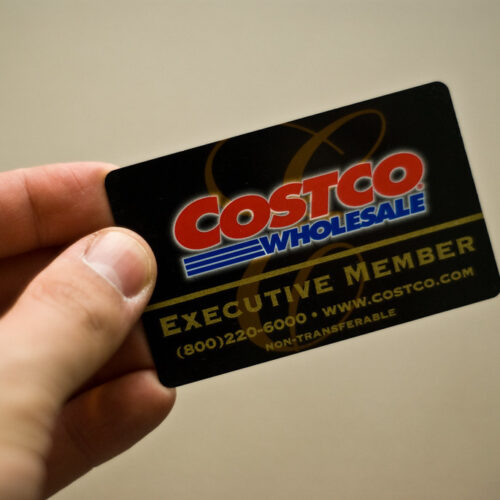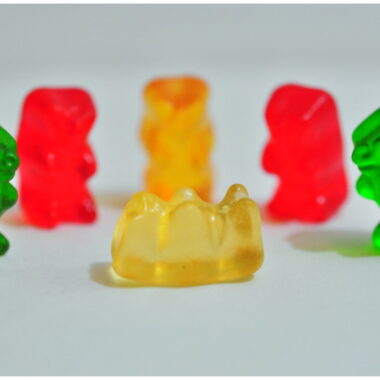When it comes to emergency preparedness, stocking up on non-perishable food items is a top priority. Canned foods are an excellent choice due to their long shelf life, convenience, and ability to retain nutritional value for extended periods. Whether you’re preparing for a natural disaster, economic downturn, or just want to build a reliable food reserve, knowing the best canned foods for long-term storage is essential.
In this article, we’ll explore the best canned foods for storage, their shelf life, nutritional benefits, and tips on proper storage.
Why Choose Canned Foods for Long-Term Storage?
Canned foods are a staple in emergency food storage because they are:
- Long-lasting – Many canned foods can last for years, even decades, if stored properly.
- Nutrient-rich – While some vitamins may degrade over time, canned foods retain essential nutrients.
- Easy to store – They don’t require refrigeration and can be stored in cool, dry places.
- Versatile – Canned foods can be used in a variety of meals.
- Ready-to-eat – Some canned foods can be consumed straight from the can, making them ideal for emergencies.
Best Canned Foods for Long-Term Storage
Below is a list of the best canned foods that provide essential nutrients, have a long shelf life, and are easy to store.
1. Canned Meat and Protein Sources
Protein is vital for survival, as it helps maintain muscle mass and energy levels. Some of the best canned protein sources include:
Canned Tuna and Salmon
- Shelf Life: 3-5 years (can last longer if stored properly)
- Nutritional Benefits: High in protein, omega-3 fatty acids, and essential minerals.
- Usage: Can be eaten alone, added to salads, or mixed into casseroles.
Canned Chicken
- Shelf Life: 3-5 years
- Nutritional Benefits: Lean source of protein, low in fat, and versatile for cooking.
- Usage: Great for soups, sandwiches, and pasta dishes.
Canned Beef and Pork
- Shelf Life: 5+ years
- Nutritional Benefits: Good source of protein, iron, and B vitamins.
- Usage: Can be used in stews, tacos, or eaten with rice.
Canned Beans (Black, Pinto, Kidney, Chickpeas)
- Shelf Life: 3-5 years
- Nutritional Benefits: High in protein, fiber, and essential minerals.
- Usage: Ideal for soups, salads, and side dishes.
Spam and Luncheon Meat
- Shelf Life: 5+ years
- Nutritional Benefits: High in protein and fats, providing essential energy in emergencies.
- Usage: Can be fried, added to sandwiches, or eaten straight from the can.
2. Canned Vegetables
Vegetables provide essential vitamins and minerals necessary for overall health.
Canned Tomatoes
- Shelf Life: 2-3 years
- Nutritional Benefits: Rich in vitamins A and C, and a good source of antioxidants.
- Usage: Used in sauces, soups, stews, and pasta dishes.
Canned Corn
- Shelf Life: 3-5 years
- Nutritional Benefits: Contains fiber, vitamin C, and folate.
- Usage: Can be eaten as a side dish, added to soups, or used in casseroles.
Canned Green Beans
- Shelf Life: 3-5 years
- Nutritional Benefits: Good source of fiber and vitamin K.
- Usage: Can be eaten alone or added to casseroles and stews.
Canned Carrots
- Shelf Life: 3-5 years
- Nutritional Benefits: High in beta-carotene (vitamin A) and fiber.
- Usage: Suitable for soups, stews, and side dishes.
Canned Peas
- Shelf Life: 3-5 years
- Nutritional Benefits: Good source of protein, fiber, and vitamin C.
- Usage: Can be added to rice dishes, soups, or stews.
3. Canned Fruits
Fruits provide necessary vitamins and natural sugars for energy.
Canned Peaches
- Shelf Life: 2-3 years
- Nutritional Benefits: High in vitamin C and fiber.
- Usage: Can be eaten alone, added to desserts, or blended into smoothies.
Canned Pineapple
- Shelf Life: 2-3 years
- Nutritional Benefits: Good source of vitamin C and bromelain, which aids digestion.
- Usage: Great for fruit salads, desserts, and stir-fries.
Canned Applesauce
- Shelf Life: 2-3 years
- Nutritional Benefits: Provides vitamin C and fiber.
- Usage: Can be eaten as a snack or used in baking.
Canned Pears
- Shelf Life: 2-3 years
- Nutritional Benefits: High in fiber and antioxidants.
- Usage: Great for desserts or eaten alone.
4. Canned Soups and Stews
Soups and stews are excellent for long-term storage because they offer a complete meal in one can.
Canned Chicken Noodle Soup
- Shelf Life: 2-5 years
- Nutritional Benefits: Provides protein, electrolytes, and carbohydrates.
- Usage: Can be eaten as a quick meal or used as a base for other dishes.
Canned Vegetable Soup
- Shelf Life: 2-5 years
- Nutritional Benefits: Contains vitamins, fiber, and minerals.
- Usage: Ready to eat or can be enhanced with additional ingredients.
Canned Beef Stew
- Shelf Life: 3-5 years
- Nutritional Benefits: High in protein, iron, and carbohydrates.
- Usage: A hearty meal that can be eaten as is.
Canned Chili
- Shelf Life: 3-5 years
- Nutritional Benefits: High in protein and fiber.
- Usage: Can be eaten alone or over rice or potatoes.
5. Canned Dairy and Pantry Staples
Dairy and pantry essentials are crucial for creating balanced meals.
Evaporated Milk
- Shelf Life: 1-2 years
- Nutritional Benefits: High in calcium and vitamin D.
- Usage: Can be used in coffee, cooking, and baking.
Sweetened Condensed Milk
- Shelf Life: 2+ years
- Nutritional Benefits: Provides energy through natural sugars.
- Usage: Great for baking and making desserts.
Canned Coconut Milk
- Shelf Life: 2-5 years
- Nutritional Benefits: High in healthy fats.
- Usage: Ideal for curries, soups, and desserts.
Canned Pumpkin
- Shelf Life: 2-5 years
- Nutritional Benefits: High in vitamin A and fiber.
- Usage: Great for baking, soups, and smoothies.
Tips for Proper Canned Food Storage
To maximize the shelf life of canned foods, follow these storage guidelines:
- Store in a Cool, Dry Place – Heat and humidity can shorten shelf life. Keep canned foods in a pantry or basement with stable temperatures.
- Rotate Stock (FIFO Method) – Use the “First In, First Out” method to ensure older cans are used first.
- Check for Damage – Avoid storing cans that are dented, rusted, or leaking, as they may be compromised.
- Label and Date – Keep track of expiration dates and regularly check for any spoilage.
- Use Oxygen Absorbers (if repackaging) – If transferring canned foods into jars, vacuum-seal them to extend shelf life.
Final Thoughts
Canned foods are a valuable addition to any long-term food storage plan. By selecting a variety of proteins, vegetables, fruits, and pantry staples, you can ensure a balanced diet in any emergency situation. Proper storage and rotation will help maintain food quality and ensure you have reliable nourishment when needed.
Start building your food reserve today with these essential canned foods!


















